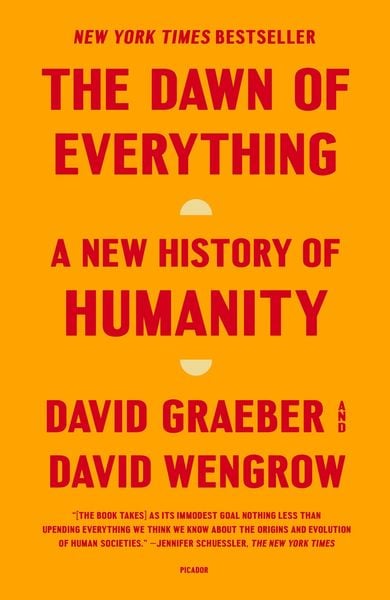Another slog to get through.
4 estrellas
This book suffers from two things in terms of its writing and structure. First, there's Graeber's desire to compress as much information into one space as humanly possible, even to the detriment of his own argument and the discussion he wants to push people to have. The second is that it seems, if I'm reading into both authors' writing styles correctly, Wengrow's desire to flesh out those concepts with more detail to further support them. (I say that because I've checked a few of his articles, and he has a tendency to develop even more focused detail than Graeber.)
I could be wrong about who was doing what, but regardless? The end result is a book that is a slog to get through and frequently leaves me forgetting half of what I've read, going back to skim it and remind myself about what they were discussing, and then trying …
This book suffers from two things in terms of its writing and structure. First, there's Graeber's desire to compress as much information into one space as humanly possible, even to the detriment of his own argument and the discussion he wants to push people to have. The second is that it seems, if I'm reading into both authors' writing styles correctly, Wengrow's desire to flesh out those concepts with more detail to further support them. (I say that because I've checked a few of his articles, and he has a tendency to develop even more focused detail than Graeber.)
I could be wrong about who was doing what, but regardless? The end result is a book that is a slog to get through and frequently leaves me forgetting half of what I've read, going back to skim it and remind myself about what they were discussing, and then trying to figure out what most of it has to do with the point being made. Which, yeah, the topics discussed do relate. But it's such a winding detour through excruciating detail that it makes it hard to focus on the overall picture that they're trying to get us to see.
So much of this would've benefitted from focused case studies rather than intertwining and switching between each of them. It also would've dealt better with more clear (instead of verbose and annoyingly lengthy) section titles that could serve as functional reminders rather than quippy sayings.
Overwhelmingly, I wasn't amused with most of this. Despite the obvious amount of time this had to have taken in order to gather all the resources and research, the writing feels rushed and confused. It doesn't feel nearly as solid as it really could've been.


